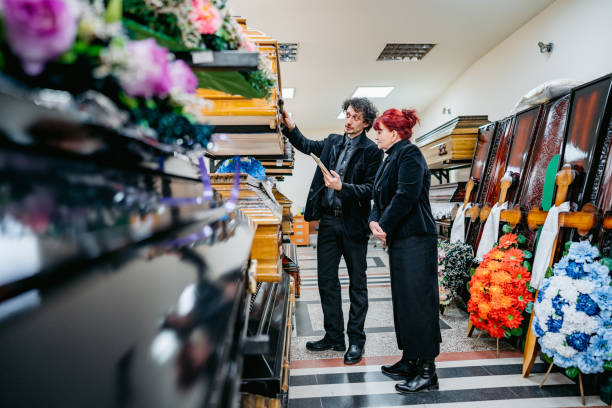Caskets are often viewed as the final resting place for our loved ones, serving as a symbol of closure and remembrance. However, there are times when these caskets need to be reopened for various reasons, ranging from legal investigations to medical necessities. The process of casket reopening can be a complex and sensitive procedure, requiring proper channels and approval.
In this article, we will delve into the legal and technical details surrounding casket reopening, shedding light on the types of caskets, reasons for exhumation, and the importance of DNA testing and grave relocation.
Like a locked door, a closed casket represents a finality that many of us struggle to come to terms with. Yet, despite the emotional significance of these caskets, they are not always meant to remain sealed forever. The act of reopening a casket can be likened to unlocking a door that has been shut for too long. It can be a daunting task that requires careful consideration, technical know-how, and legal approval.
In this article, we will explore the truth about casket reopening, examining the various factors that come into play when deciding whether or not to reopen a casket. Whether it is for legal or medical reasons, or at the request of family members, the decision to reopen a casket is never taken lightly.
Opening a Closed Casket
Regarding casket reopening, it is important to note that, while caskets can be reopened with tools and legal permission, sealed caskets require a key for reopening and cannot be opened from the inside. Unsealed caskets, on the other hand, are easier to open and allow gases to escape, which slows the decomposition process.
If a casket needs to be reopened, it is important to have the necessary tools and legal permission to do so. Sealed caskets, which are more expensive, have a rubber gasket or sealer for protection. If a sealed casket needs to be reopened, a key is required to unlock it. It is important to note that caskets cannot be opened from the inside due to external locks.
Unsealed caskets, which are cheaper, do not have a rubber gasket or sealer, making them easier to open. Additionally, they allow gases to escape, which slows the decomposition process.
Types of Caskets
Sealed and unsealed caskets differ in their level of protection against external elements, with the former being touted as offering airtight seals for maximum preservation. Sealed caskets typically come with rubber gaskets or sealers that provide a barrier between the environment and the body inside, keeping it safe from moisture, insects, and other external elements.
Unsealed caskets, on the other hand, are cheaper and easier to open, and are often preferred for their ability to slow down the decomposition process by allowing gases to escape. Benefits of sealed caskets include their ability to protect the body from external elements, which can result in a longer preservation period for the body, making it possible for family members to view their loved one for a longer time.
However, airtight seals can also cause toxic gases to build up inside the casket, which can be harmful to the environment. Unsealed caskets, on the other hand, are less expensive and allow for gases to escape, but they offer less protection to the body and can speed up the decomposition process.
When choosing between sealed and unsealed caskets, cost is also a factor, with sealed caskets typically being more expensive due to their added protection.
Reasons for Exhumation
Exhumation, the act of digging up a buried body, can occur for various reasons. These reasons include criminal investigations, medical purposes, family requests, incorrect burial placement, or retrieving grave goods. In cases of criminal investigation or medical purposes, exhumation may be necessary to gather evidence, perform an autopsy, or conduct DNA testing. Exhumation for family requests may occur if the family wishes to relocate the grave of a loved one or if they want to establish a family plot. Incorrect burial placement may also require exhumation to move the body to the correct location.
Grave goods may also be a reason for exhumation. These goods may have sentimental value to the family or may be necessary for a criminal investigation. In cases where a family wishes to relocate the grave, the current grave may be moved to another location or merged with other family plots. War veterans may also be moved to dedicated cemeteries, and the Tennessee Valley Authority has a database for relocated graves. Exhumation requires approval from the court, next of kin, cemetery, and grave plot owner. It is important to follow legal channels and proper approval when considering exhumation for any reason.

